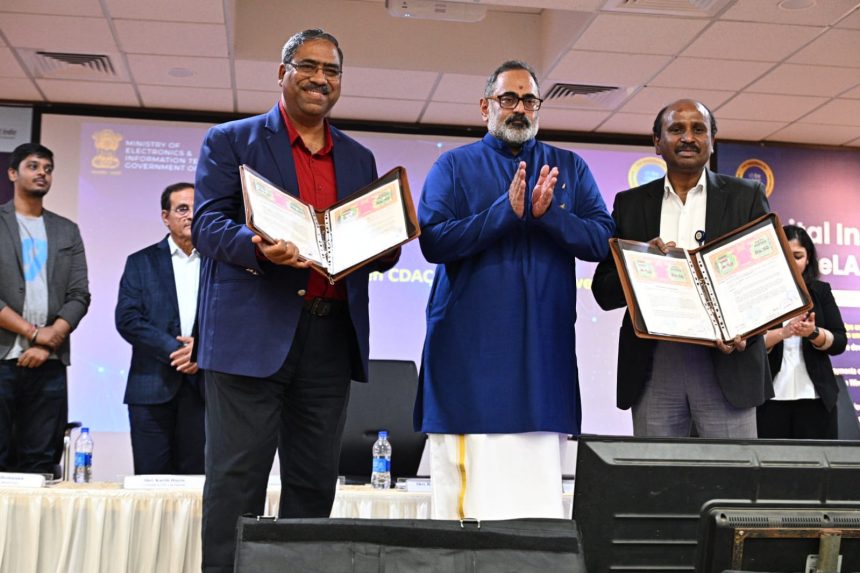On March 13, 2024, India witnessed a significant milestone in its pursuit of self-reliance in the semiconductor sector. Union Minister of State for Electronics and IT, Skill Development, Entrepreneurship, and Jal Shakti, Shri Rajeev Chandrasekhar, inaugurated the nation’s first FutureLABS center at the C-DAC (Centre for Development of Advanced Computing) in Thiruvananthapuram. This pioneering initiative marks a critical step towards fostering a vibrant ecosystem for next-generation chip design, manufacturing, and research within the country.
What is FutureLABS?
The FutureLABS initiative, spearheaded by the Ministry of Electronics and IT (MeitY), envisions establishing a network of collaborative laboratories across India. These labs will serve as hubs for innovation, bringing together government bodies, industry leaders, academia, startups, and students. Their primary focus will be:
- Accelerating Chip Design: FutureLABS centers will provide state-of-the-art infrastructure and resources to empower researchers and startups to design cutting-edge semiconductors catering to diverse applications.
- Encouraging Innovation: By fostering collaboration between diverse stakeholders, FutureLABS aims to stimulate a culture of innovation and accelerate the development of indigenous chip design capabilities.
- Bridging the Gap: These labs will bridge the gap between academia and industry, enabling students and researchers to translate their theoretical knowledge into practical chip design solutions.
The Thiruvananthapuram Center: A Center for Semiconductor Chip and Systems
The first FutureLABS center, christened “Centre for Semiconductor Chips & Systems for Strategic Electronics,” will play a pivotal role in strengthening India’s position in the global semiconductor landscape. Here’s what this center will focus on:
- Advanced Chip Design: The center will equip researchers with the tools and expertise necessary to design complex chips for strategic applications in areas like artificial intelligence, defense, and telecommunications.
- Promoting Collaboration: The Thiruvananthapuram FutureLABS aims to foster collaboration between domestic chip design houses, startups, and international partners to accelerate innovation.
- Developing a Skilled Workforce: The center will actively contribute to creating a skilled workforce by offering training programs and workshops in chip design and related fields.
FutureLABS and India’s Semiconductor Ambitions
The inauguration of the first FutureLABS facility marks a significant stride towards India’s vision of achieving self-reliance in the semiconductor sector. This initiative, coupled with other government programs like the “India Semiconductor Mission (ISM),” aims to:
- Reduce Reliance on Imports: FutureLABS will empower India to design and manufacture its own chips, thereby reducing dependence on foreign imports and mitigating supply chain vulnerabilities.
- Boost Domestic Manufacturing: By nurturing a robust domestic chip design ecosystem, FutureLABS can pave the way for the establishment of semiconductor fabrication facilities in India.
- Fuel Innovation: The collaborative environment fostered by FutureLABS will drive innovation and propel India to the forefront of chip design technologies.
Looking Ahead: A Catalyst for Growth
The launch of India’s first FutureLABS center opens promising avenues for the nation’s chip design aspirations. By fostering collaboration, nurturing talent, and accelerating innovation, FutureLABS has the potential to be a game-changer, propelling India towards becoming a global leader in the semiconductor industry. The success of the Thiruvananthapuram center will pave the way for the establishment of more such facilities across India, fostering a robust domestic ecosystem for chip design and propelling the country towards a future driven by indigenous technological advancements.








